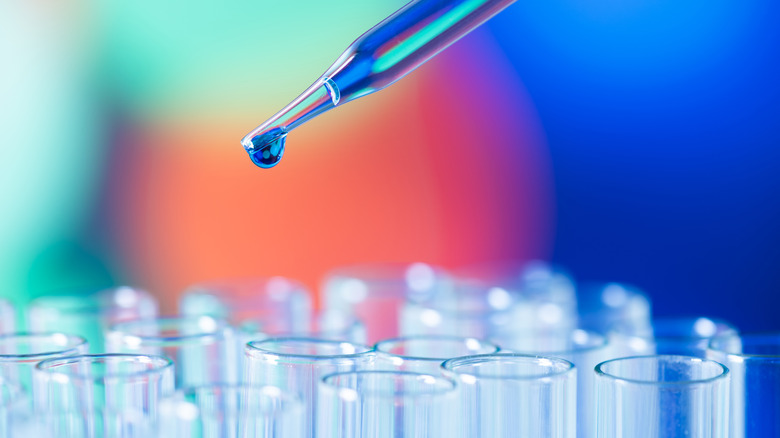The Futuristic Way Finnish Scientists Are Growing Coffee
Who doesn't love a cup of morning joe? The biggest fans of coffee go to bed thinking it, and head right the percolator almost as soon as they wake up. Coffee in all its forms — from lattes to cold brew to plain ol' black — is certainly a heavenly drink, and it's no surprise that the beverage has been utilized in sacred rituals throughout the centuries, from 16th-century Yemeni mystics' all-night prayer sessions to modern-day church basement gatherings (via Magellan TV).
But as much as we love coffee, it's important to realize it's among the world's many crops that's becoming endangered due to climate change. According to recent research, coffee is becoming harder to grow in today's warming climate: the delicate coffee bean can't tolerate too-high temperatures, which can result in the coffee cherry — which is the fruit that surrounds the coffee bean — maturing too fast in relation to the bean. That leads to low-quality coffee, which is obviously less desirable in the marketplace. According to Eco Watch, changes in the climate have the potential to severely affect some of the world's most renowned coffee-growing regions, from Ethiopia to Colombia.
And that, friends, is where science comes in. Recently, Finnish scientists announced new technology that produces coffee in a lab — not on plantations. Here's how it works.
Cellular agriculture might save coffee
When it comes to coffee, Scandinavians get serious: According to the Netherlands-based Centre for the Promotion of Imports, Norway, Denmark, and Sweden have some of the highest per capita coffee consumption rates in the world. Same goes for Finland, where, according to Culture Trip, citizens drink more coffee than any other nationality on Earth — an average of eight to nine cups per person per day.
It comes as no surprise, then, that Finns would be concerned about the changing global climate conditions that scientists say have the potential to negatively impact the world's coffee production, making the beloved crop scarcer, of lower quality, and more expensive (via Eco Watch). F
Fortunately, Finnish scientists are on the case. According to an article published yesterday in Vegconomist, scientists at Finland's VTT Technical Research Centre are producing coffee using a method called cellular agriculture: Cell cultures suspended in bioreactors can be surrounded with nutrient medium and used to create animal- and plant-based products. In this way, the Finnish scientists have produced coffee cells that, they say, brew up to taste just like normal coffee.
"In terms of smell and taste, our trained sensory panel and analytical examination found the profile of the brew to bear similarity to ordinary coffee," head researcher Dr. Heiko Rischer told Vegconomist.
Still, she noted, "coffee making is an art and involves iterative optimization under the supervision of specialists with dedicated equipment." Either way, we're willing to try some lab-brewed java — especially if the real stuff might not be around as long as we'd like.

